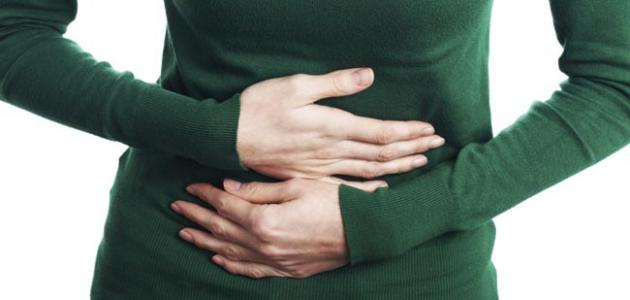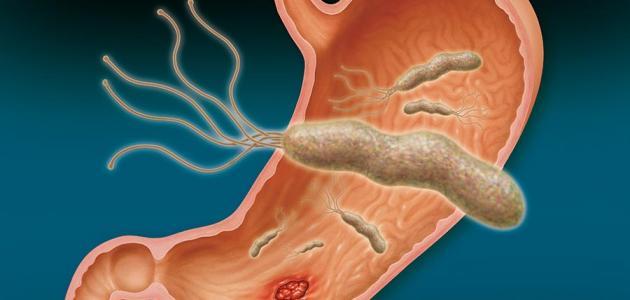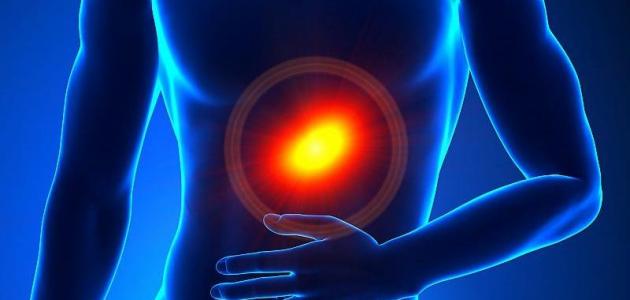Causes of colic and diarrhea
The feeling of colic, abdominal pain, or abdominal pain can coincide with the occurrence of diarrhea, whether it is acute diarrhea that occurs suddenly and whose symptoms disappear after a few days, or chronic diarrhea that develops gradually and lasts for a longer period. The reasons leading to this are multiple, and the most common of these reasons are listed below:
infection
Below is a list of the common types of infections that cause abdominal pain accompanied by diarrhea:
- Inflammation of the stomach and intestines: (in English: Gastroenteritis); Gastroenteritis usually does not require medical intervention to treat; Symptoms often disappear after a few days of infection, but it is recommended to follow some home measures and procedures. Such as taking adequate rest, obtaining sufficient amounts of fluids, in addition to taking an over-the-counter medication to relieve pain and discomfort after consulting a doctor. Below is a statement of the types of infections that cause gastroenteritis:
- Viral infection: The infection is usually transmitted from one infected person to another healthy person and is known as stomach flu.
- Bacterial infection: Symptoms begin to appear within a few hours or days of exposure to the bacteria that cause gastroenteritis, and may occur due to eating contaminated food or drinking contaminated water.
- Parasitic infection: The infection usually goes away within a few weeks, but if the infection persists or spreads, it requires medical intervention.
Read also:How to expel gas from the abdomen
Reactions to food
Eating certain types of foods may cause abdominal pain accompanied by diarrhea and health problems in the stomach, but it is noteworthy that these symptoms usually disappear after a few hours of eating, and the following is a statement of these factors related to the diet:
- Eat foods rich in fat.
- Allergy to some foods.
- Making sudden changes in diet.
- The body's inability to break down gluten. It is a protein found in wheat and barley, for people with celiac disease or wheat allergy (in English: Celiac disease).
Indigestion and overeating
Overeating can cause side effects and symptoms that affect the digestive system in children and adults alike. However, children may be more susceptible to these disorders due to their inability to distinguish between hunger and fullness at all times, and thus indigestion, diarrhea, and stomach pain may result from eating large amounts of food that are difficult for the digestive system to handle.
irritable bowel syndrome
Irritable bowel syndrome, or IBS for short, is a common and chronic health problem that affects the digestive system. It is noteworthy that it greatly affects the individual’s lifestyle, and causes a group of symptoms represented by colic or abdominal pain, bloating, and changes in the Bowel habits range between diarrhea and constipation, and these symptoms may last for several days, weeks, or months each time they appear; The symptoms alternate, appearing and disappearing from time to time over time. The exact cause is not yet known, but it is indicated that they are linked to a number of factors, including the following:
Read also:How to expel gas from the abdomen- Food passes through the intestine too quickly or too slowly.
- Hypersensitivity of nerves in the intestine.
- Family history of irritable bowel syndrome.
- Stress.
inflammatory bowel disease
Inflammatory bowel disease (IBD) for short; It is a term that includes a group of digestive system diseases that include ulcerative colitis and Crohn's disease, and the symptoms accompanying it include: colic, diarrhea, fatigue, blood in the stool, and weight loss.
Stress
It has been shown that there is a strong connection between stress and the appearance of some negative effects at the level of the stomach and intestines, and the symptoms or physical effects of stress may differ from one person to another. Some may suffer from an upset stomach or abdominal cramps, while others may suffer from other symptoms, and the reason for this is due to the fight-or-flight response that occurs because of the signals that the brain sends to the rest of the body. The body through the sympathetic nervous system when feeling stressed; Which causes an acceleration of the heartbeat, increased attention and alertness, and tightening of the muscles to be prepared for any emergency. However, it is noteworthy that this biological response does not occur when exposed to the pressures of daily life, family obligations, and financial matters, but rather occurs in the event of exposure to a sudden danger.
Read also:What are the causes of blood in the stool
Medicines and alcohol
Diarrhea is a side effect of taking many medications, but it sometimes disappears after a few days of taking the medication. The body adapts to the medication, but if diarrhea continues for a longer period, you must consult a doctor to replace the medication used with another. Some of these medications are mentioned below:
- Magnesium-containing antacids.
- Non-steroidal anti-inflammatory drugs.
- Some antibiotics.
- Chemotherapy drugs.
- Metformin medication.
- Laxatives; This is when used excessively.
It is recommended to avoid drinking alcohol; It negatively affects the digestion process, and leads to the appearance of many symptoms. Such as feeling cramps, diarrhea, vomiting, and other symptoms, in addition to its other negative effects on the body.
pregnancy
Pregnant women are particularly vulnerable to diarrhea and abdominal pain. The common reasons for this include changes in their diet during pregnancy, which causes disturbances in their digestive system. This may also be due to hormonal changes that occur during pregnancy, in addition to allergies that occur. Some pregnant women suffer from a specific type of food.
Premenstrual syndrome
Premenstrual syndrome, or PMS for short, expresses a group of symptoms and physical and psychological changes that many women feel approximately one to two weeks before the usual menstrual bleeding date. These symptoms range in severity from Minor and severe, they also tend to appear in a specific pattern so that it becomes easy to predict their occurrence. These symptoms go away a few days after menstrual bleeding begins due to the rise in hormone levels again. The most prominent of these symptoms are the following:
- Abdominal bloating and feeling of colic.
- Feeling pain in the joints or muscles.
- headache;
- Fatigue.
- Feeling pain in the breast when touched.
- Weight gain is linked to fluid retention.
- Changes in bowel habits; This is represented by constipation or diarrhea.
- The appearance of bouts of acne.
Rare causes of colic and diarrhea
Bloody diarrhea that gradually gets worse may indicate suffering from one of the more serious health problems, including the following:
- Diverticulitis (in English: Diverticulitis); It is an infection or inflammation of the sinuses or sacs that can form in the intestine, which are known as diverticula.
- Appendicitis.
- Fecal impaction.
- Bowel obstruction.
- Colitis; It is a chronic disease that affects the digestive system and is characterized by inflammation of the inner lining of the colon.
- Cystic fibrosis (in English: Cystic fibrosis); It is a hereditary disease that may cause damage to many organs of the body due to the accumulation of thick and sticky mucus.
- Some types of cancer.
- Diseases or infections that affect the organs in the abdominal area, including: intestines, kidneys, appendix, spleen, stomach, gallbladder, liver, and pancreas; As infections that affect these organs cause pain in addition to diarrhea, including: pancreatitis, which is represented by swelling in the pancreas, and may develop into chronic if the pancreas does not recover or the symptoms improve; Which leads to symptoms getting worse over time and thus causing permanent damage.
Reasons to see a doctor
You should consult a doctor if you feel abdominal pain and diarrhea continues for three days or more, or if you feel severe and increasing abdominal pain within 24 hours, or if it is accompanied by the appearance of any of the following symptoms:
- Nausea or frequent vomiting.
- Confusion or loss of consciousness.
- The body temperature rises continuously, reaching 38.3 degrees Celsius in adults and 38 degrees Celsius in children.
- Stool containing blood.
- External bleeding.
- Inability to retain stomach contents.
- Excessive thirst or dry mouth.
- Convulsive seizures.
- Inability to speak or see.
- Yellowing of the skin or eyes.
- Swelling in the genitals.









